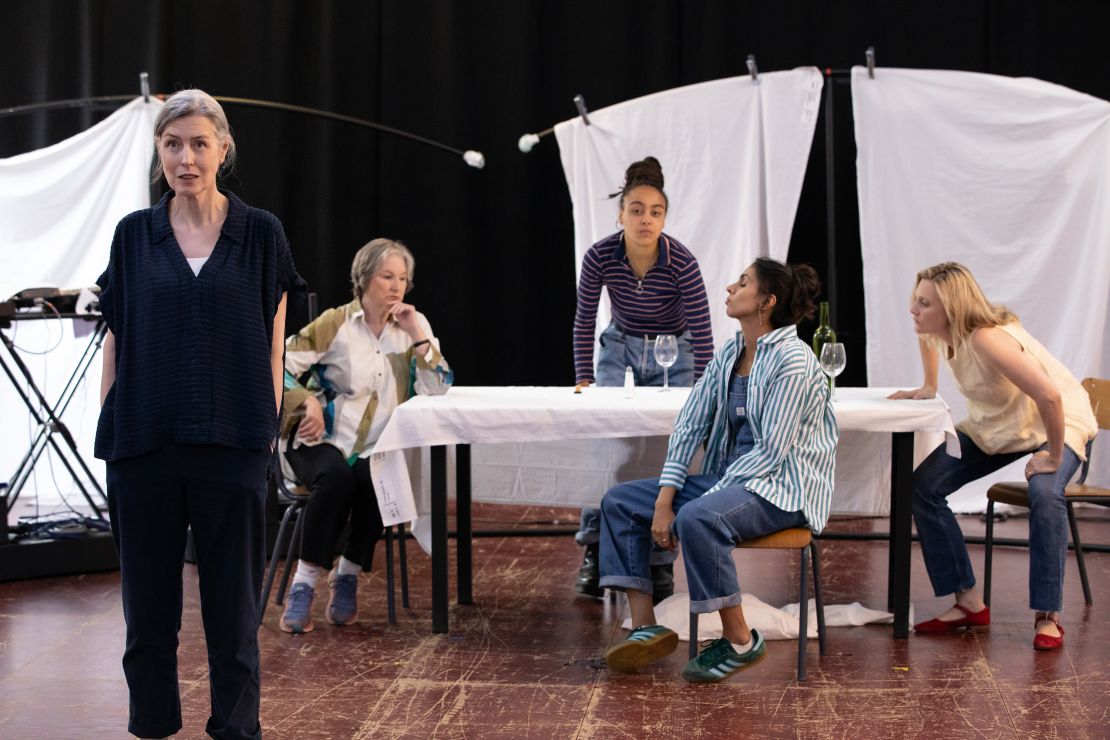A play that opened in London this week had to be temporarily paused after audience members felt unwell during a graphic scene depicting an abortion.
Staff at the renowned Almeida Theatre in Islington, north London, were forced to suspend its production of “The Years” for a short time on Monday after multiple audience members required assistance.
The play, which runs for one hour and 55 minutes without an interval and is directed by Eline Arbo, is based on “Les Années,” the autobiography of Nobel Prize-winning French writer Annie Ernaux. According to the Almeida’s website, five actresses – including Romola Garai and Gina McKee – “bring one woman’s personal and political story to life, set against the backdrop of a rapidly changing post-war Europe.”

The theater’s website carries a content warning for the play, which was first staged in the Netherlands in 2022. It suggests a recommended minimum age of 15 and states that the production features a “graphic depiction of an abortion.” It also warns that the production features blood, sexual content and a “coerced sexual encounter.”
A spokeswoman for the Almeida confirmed the episode in an email to CNN. She said: “The performance on Monday of The Years was stopped for 10 minutes so that our Front of House team could provide care for an audience member who required assistance. During the stoppage, care was also provided for three other audience members. All audience members were quick to recover after brief assistance.”
The statement went on to say that the theater “will continue to warn audiences of the content” on its website, in pre-performance emails and in signs in the venue’s front of house area.
Ernaux, 83, won the Nobel Prize in literature in 2022. She was given the prestigious award “for the courage and clinical acuity with which she uncovers the roots, estrangements and collective restraints of personal memory,” CNN reported at the time.
Her work is closely inspired by her own life, and contemplates family, class, politics and gender. Her novel “Happening” details her experience of getting a dangerous backstreet abortion in 1963, when the procedure was illegal in France.
“There were thousands who had been through secret abortions, I wanted to recreate the truth of it exactly as it was in the moment, ridding myself of any knowledge of the fight for women’s rights that would follow,” the author told the Guardian in 2019. “Because in 1963, 1964 when it happened to me, it was unthinkable to imagine abortion would one day be authorised, doctors wouldn’t even say the word.”
CNN’s Rob Picheta contributed to this story.




